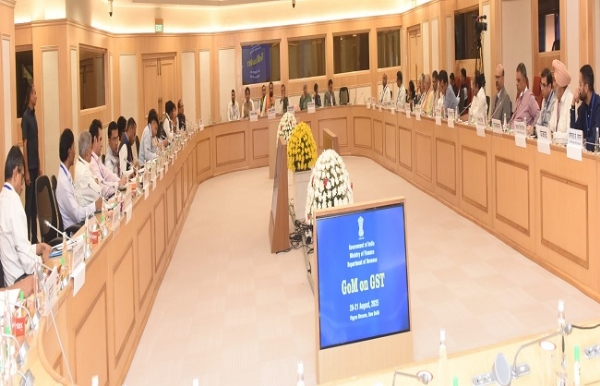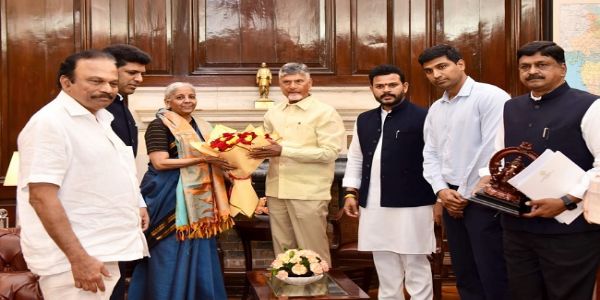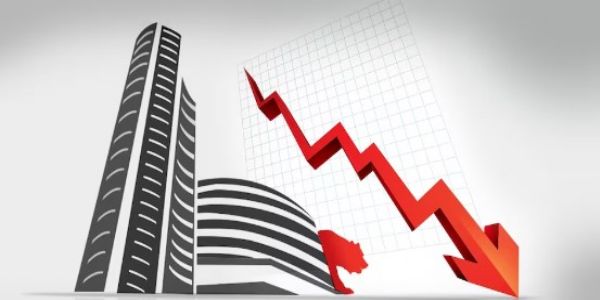
New Delhi, August 20 (HS): Union Finance and Corporate Affairs Minister Nirmala Sitharaman on Wednesday announced that the proposed changes in the Goods and Services Tax (GST) structure—particularly rate rationalization—will bring tangible relief to the common man, farmers, the middle class, and MSMEs. The relief measures include tax rate cuts and streamlined compliance norms designed to ease the burden on businesses.
The Finance Minister was addressing a meeting of the Groups of Ministers (GoMs) on GST compensation cess, health and life insurance, and rate rationalization at Vigyan Bhawan in New Delhi. The meeting was attended by Minister of State for Finance Pankaj Chaudhary, the Chief Minister of Goa, the Deputy Chief Minister of Bihar, and finance ministers from states represented in the three GoMs.
Outlining the Centre’s reform vision, Sitharaman emphasized that the new proposals mark the “next generation” of GST reforms—a critical step in India’s journey toward becoming an Atmanirbhar Bharat (self-reliant nation).
According to her presentation, the proposed reforms revolve around three key pillars:
-Fixing inverted duty structures to reduce unnecessary build-up of input tax credit and encourage domestic value addition.
-Resolving classification-related disputes, thereby ensuring simpler compliance and fewer litigations.
-Enhancing stability and predictability in GST policy to boost business confidence and enable long-term industrial planning.
She stressed that the aim of rate rationalization is not just fiscal balance but affordability for households, greater support to agriculture and MSMEs, and a growth-oriented, transparent tax framework. Lower rates, she said, would increase consumption and improve access to both essential and aspirational goods across wider sections of society.
The upcoming reforms also promise a technology-driven GST ecosystem with seamless registrations, pre-filled returns to reduce errors, and faster automated refunds. This, Sitharaman noted, will simplify compliance, strengthen businesses, and ultimately enhance the overall ease of living and ease of doing business in India.
---------------
Hindusthan Samachar / Jun Sarkar








